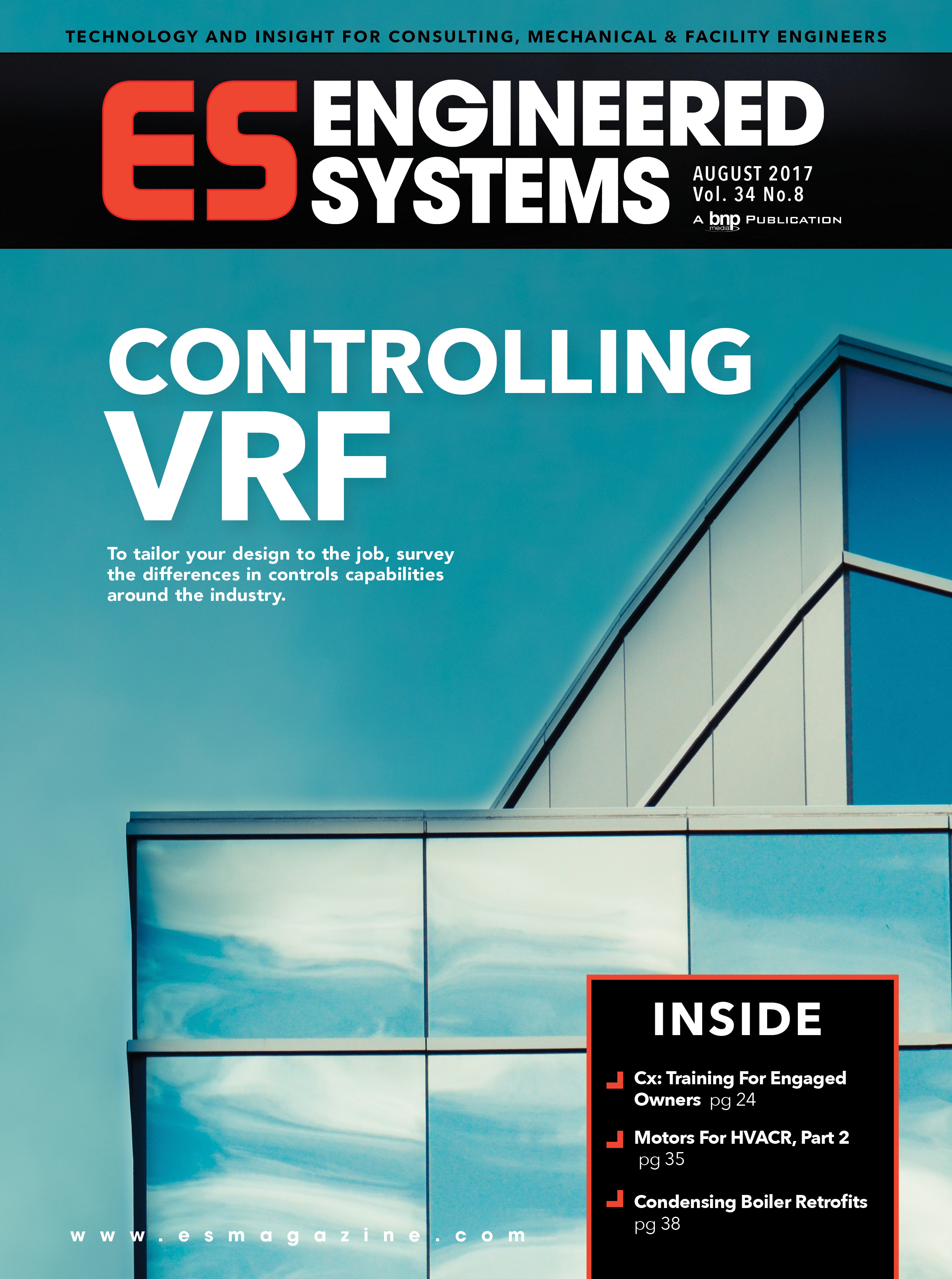Putting it in Place…
As with so many aspects of commissioning, the answers to these questions need to be determined on a case-by-case, owner-by-owner, and/or project-by-project basis. However, I’d like to make the following suggestions as to where one might want to draw the line between QC and commissioning.Quality control could be considered to apply to the “static” equipment and systems installed for a project. These would include piping, ductwork, air-handling unit casings, coils, filters, insulation, etc., and connections between these components. The static systems are those which are typically considered standard punchlist items the designers are expected to review as part of their construction observation scope of work. The QC manager on any particular project would be tasked with the job of making sure that all material quality and installation requirements are met so that these systems “pass” the final punchlist.
Quality control could be defined as being responsible for verifying and documenting adherence to the technical specification requirements (usually Division 15 and Division 16) for the static systems. This would include any testing of these systems as specified in Division 15 or 16 (e.g., pipe hydraulic testing, duct leakage testing, and other tests specified to be conducted by the contractors regardless of whether a project is being commissioned).
…and putting it in play
Commissioning could be considered to apply to the “dynamic” aspects of the installed equipment and systems. The actual operation and control of the installed systems is something designers are typically not expected to delve into deeply as part of their construction observation or punchlist responsibilities. As such, it isn’t clear that a QC manager would be required to or as motivated to oversee the systems operation and intersystem coordination if these are not to be “checked” as a prerequisite to project closeout.Commissioning could also be considered to apply to all of the specified requirements which have implications for the operation and maintenance (O&M) of the installed systems. For example, O&M manual submission and review, O&M training, equipment and system accessibility and serviceability, as-built documentation, etc. represent a critical aspect of commissioning which may or may not otherwise be set as a high priority in a standard QC program.
Now, who actually should be responsible for QC and for commissioning? It seems pretty obvious that the two are very closely related. However, unless the QC manager is well-versed in systems operation (not just installation and static testing) and integration, that particular person is not necessarily the right one to develop and implement a commissioning plan.
This isn’t to imply that all QC managers are unqualified for commissioning work; it’s just that the requirements for ensuring proper static and dynamic system installation, startup, and operation are significantly different, and not everyone who can do one can be assumed to be able to do the other.
We often find that an outside commissioning consultant is retained (usually by the owner) to develop a commissioning plan, and the contractor’s QC manager is assigned the responsibility for overseeing its scheduling, implementation, and incorporation into the contractors’ scope of work. In the interest of avoiding conflicts of interest, however, the independent commissioning consultant is involved throughout construction as the owner’s eyes and ears and the “check” on the acceptability of the final commissioned systems’ operation and integration.


